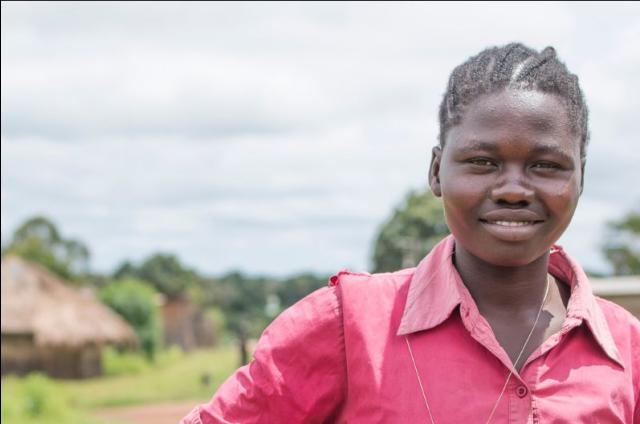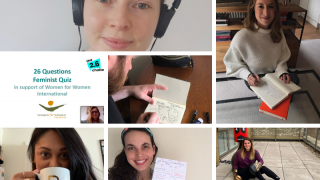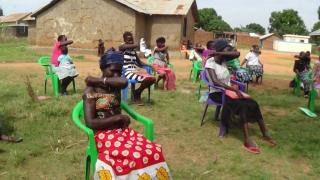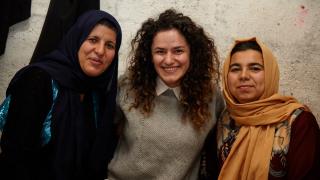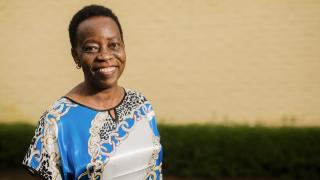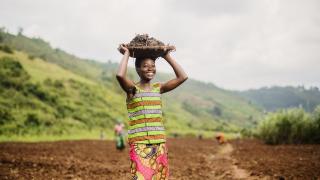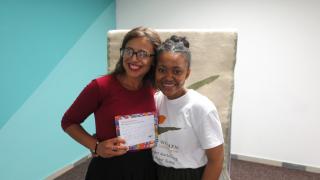From Conflict to Collaboration: A Couple's Transformation
From Conflict to Collaboration: A Couple's Transformation
The journey of two graduates of our programme, Mawa and Jackline, finding peace through our programme
Mawa and Jackline have been married for six years. They live in Wuluturu, Yei River County, South Sudan, with their two children. Their marriage was on the brink of collapse when they were enrolled in our Couples Connect Pilot Programme.
Today, Mawa shares that they now live together in harmony. Here is his story.
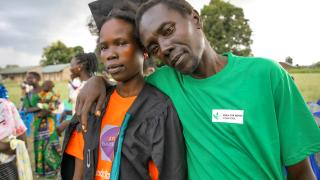
In my culture, being a man means being the head of the family. This title comes with responsibilities but also a lot of privileges.
As the head of my household, I was raised to be the sole provider and decision-maker. Everything I said or did was final. My wife wasn’t supposed to seek financial independence or earn a living; she was meant to stay home and take care of the family.
This belief shaped my expectations when I got married.
To my surprise and frustration, my wife was not the obedient woman I expected. She had a mind of her own and wanted to contribute financially. She would buy things for our home without my input, prepare meals with money I hadn’t given her, and even engage in small businesses and casual labour to make her own money. This independence didn't sit well with me. I was suspicious - where did she get the money? Why was she always away from home? Was she trying to compete with me or, worse, undermine my authority?
My suspicions turned to anger. I verbally insulted her and sometimes became violent. I threw away food she prepared with her own money and restricted her movements.
Our home became a battleground, and we became enemies living under the same roof.
One morning, my wife suggested we join the Couples Connect Programme with Women for Women International.
Initially, I was hesitant. But she mentioned that we might receive financial support if we attended together. Reluctantly, I agreed, motivated only by the prospect of money.
As we participated in the programme, something remarkable happened. We learned about teamwork, sharing responsibilities, effective communication, problem-solving and financial management.
Slowly, I began to understand and appreciate my wife’s efforts.
We started talking again, discussing business, farming and our children. I began supporting her business and we started working together. By the end of the programme, we received some capital, which we invested in her business.
Today, our lives are transformed. I can relax a little, knowing that I don’t have to shoulder every burden alone.
We are a team.
Recently, I developed an illness that affects my ability to walk or stand, making it difficult for me to work. My wife has become the primary breadwinner, contributing up to 70% of our family’s income. I now support her as best I can.
I am grateful to Women for Women International for this life-changing programme and for giving me another chance at love.
I am also grateful to my wife for being strong and persistent.
Without her, I don’t know how I would manage in my current condition.
To all women, I encourage you to support your husbands and not give up on your families. And to the men, I hope you learn from my experience: support your wives, and if you can’t support them, at least don’t stand in their way.
keep reading
COVID-19 has served as a reminder that the existing, long-term challenges we face as a global community are exacerbated in times of crisis.
We Are "Hanya"
subtitle:
Women entrepreneurs in Iraq are preventing the spread of COVID-19.
Fundraising Ideas for the 2.6 Challenge
subtitle:
Take part in the 2.6 Challenge to support some of the world’s most vulnerable women during this crisis that affects us all.
We invest in the strength of women’s connections and community, even across distances. Our teams and participants are now using those connections to protect and support one another during the COVID-19 pandemic.
Distance Won’t Stop Our Support: A COVID-19 Update
subtitle: COVID-19 UPDATE
Women for Women International invests in the strength of women’s connections and community, even across distances. Our teams and participants are now using those connections to protect and support one another during the COVID-19 pandemic.
#AloneTogether with women in Iraq
subtitle:
Although Iraq is in lockdown our team continues to stay in touch with the women we serve. Shan, our Economic Empowerment Manager has been making calls and using social media to send women important news about health, government resources, and especially to make sure women know they aren’t alone.
As the Coronavirus pandemic spreads across the world, we are hearing from our global colleagues about how the crisis is affecting them and the women they serve.
This March, mark International Women’s Day with our corporate partners by joining the sisterhood and supporting the women we serve – the impact of your support will extend far beyond one day.
'MY LOVE, WHOM I RESPECT’
subtitle:
Working with men in Nigeria to combat domestic violence and promote equal relationships.
The impact of #MessageToMySister
subtitle:
These are the responses from some of the women who received #MessageToMySister postcards. See the impact of your words.
Hand Delivering My #MessageToMySister
subtitle:
Sylvia describes the impact of hand delivering a #MessageToMySister postcard to Fatima, a young woman from Bosnia and Herzegovina.
Top Tips for a Successful Career
subtitle:

